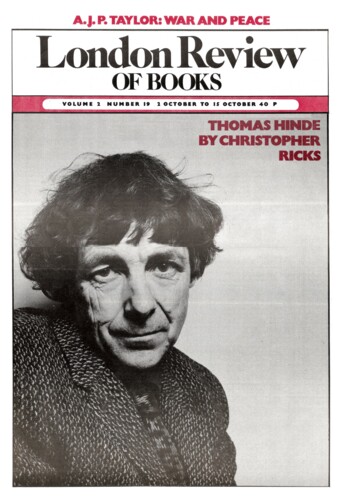Unilateralist Options
John Dunn, 6 August 1981
As with the sword or the bow and arrow, making up one’s mind responsibly about the Bomb is not an easy task. For anarchists or pacifists the exercise of violence by state powers throughout history has been intrinsically regrettable. But any style of political assessment which weights consequences more heavily than these do must recognise practical connections (sometimes of a surprising kind) between the history of civilised social life and that of repressive force. Exponents of most modern political theories do, it is true, at least affect to believe that the dependence of civilised social life upon physical repression has diminished, and is diminishing; and some even suppose that it can reasonably be expected in due course to vanish painlessly away. There is perhaps some inductive support in recent historical experience for the judgment that it has diminished, but little, if any, for the judgment that it is still diminishing. Grounds offered for the conviction that it might in future vanish silently away must necessarily be more sparely theoretical and the best that can be said for them is that, thus far, they have been intellectually perfunctory.




